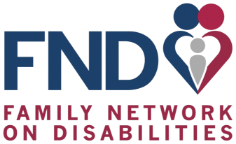INformation Hub
Disability Awareness Activities for Students of All Ages
Disability Awareness Activities for Students of All Ages
Learning more about disabilities helps students develop positive attitudes toward people with disabilities. This 2013 information sheet from PACER Center provides ideas of activities and strategies teachers can use to encourage disability awareness in the classroom.
http://www.pacer.org/parent/php/PHP-C204.pdf
SOURCE ARTICLE: Pacer Center
Menu
Give us a call at (727) 523-1130 or (800) 825-5736 or request a callback by clicking below.
311 South Missouri Ave, Clearwater, FL 33756
(727) 523-1130
(800) 825-5736

